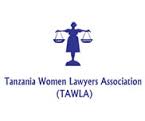Focal point
Location
Tanzania Women Lawyers Association (TAWLA) is an NGO founded in 1989 and officially registered in 1990. The founding members comprised a professional group of women lawyers who felt the need for an organization that could promote an environment guaranteeing equal rights and access to all by focusing on vulnerable and marginalised groups especially women and children. The founding members also recognised the need for women lawyers to foster mutual support for each other in professional advancement and social responsibility. TAWLA has more than 570 members
Members:
Resources
Displaying 11 - 13 of 13Who Is Mama Ardhi?
While the guarantees provided in the Katiba mark an extraordinary achievement for women’s land rights, many more steps are needed to reach gender-equitable land ownership in Tanzania. Mama Ardhi members therefore continue to advocate for additional changes in policy and practice that will bring about real transformation for women, their children and society as a whole.
Who Is Mama Ardhi?
While the guarantees provided in the Katiba mark an extraordinary achievement for women’s land rights, many more steps are needed to reach gender-equitable land ownership in Tanzania. Mama Ardhi members therefore continue to advocate for additional changes in policy and practice that will bring about real transformation for women, their children and society as a whole.
Reduced Emissions from Deforestation (REDD+) in DRC - Deforestation and development with REDD+
General
The Swedish Embassy in Kinshasa has conducted dialogue with the Democratic Republic of the Congo’s National Fund for Reducing Emissions from Deforestation and forest Degradation (FONAREDD) on Sida Project Support during the period 2018-2022. Sida intends to contribute to FONAREDD with 36,580,000 SEK, with soft earmarking to the fund's integrated REDD project in the province of Equateur. The Fund currently funds eight projects, and another ten has been planned for. The total budget for all 18 projects is about 180 million USD. The fund is owned by the Congolese Government, but it is administered, according to agreement, by UNDP. The Equateur project aims at stabilizing deforestation, afforestation an improving living conditions and income for the province's rural population through; (i) Improvement of governance by capacity building of decentralized services and capacity-building by local community governance; (ii) land use planning, through development planning and zoning as a basis for land management; (iii) sustainable community-based forest management, to reduce pressure on forests and enhance forest carbon stocks; (iv) enhancement of agricultural activities and use of savannah areas through promotion of agroforestry and conservation agriculture, carried out collectively or individually by households to increase livelihoods and diversify income sources, while reducing pressure on virgin forests; (v) support for urban and peri-urban forestry for food security and the creation and promotion of sustainable energy sources; (vi) access to family planning services and nutritional services for local populations and indigenous peoples. The UN Food and Agriculture Organization (FAO), which is UNDP's implementing partner, will execute the project together with WWF. The project's total budget is SEK 91 450 000, of which Central African Forest Initiative (CAFI) accounts for SEK 54 870 000.
Objectives
The objective of the national REDD program in the DRC is to: (i) Reduce Greenhouse Gas Emissions from Deforestation and forest degradation, and increase the level of uptake by sinks in the forest sector; (ii) generate co-development benefits. Sweden has chosen to contribute to the National REDD Fund with soft earmarking of funds to a specific project. This additional funding has allowed for a wider scope of the project and strengthening of the project's gender equality perspective. The specific objective of the Equateur intervention is to Stabilise deforestation and afforestation, and improve the living conditions and incomes of rural communities through: (i) Improvement of governance by capacity building of decentralized services and capacity-building by local community governance; (ii) Land use planning, through development planning and zoning as a basis for land management. Sustainable community-based forest management, to protect and enhance forest carbon stocks. (iii) Sustainable community-based forest management, to reduce pressure on forests and enhance forest carbon stocks; (iv) Enhancement of agricultural activities and use of savannah areas through promotion of agroforestry and conservation agriculture, carried out collectively or individually by households to increase livelihoods and diversify income sources, while reducing pressure on virgin forests; (v) Support for urban and peri-urban forestry for food security and the creation and promotion of sustainable energy sources; (vi) access to family planning services and nutritional services for local populations and indigenous peoples.



